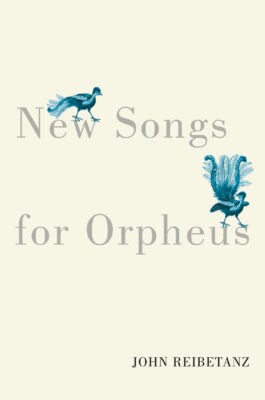John Reibetanz’s poetry collection rewrites Ovid’s Metamorphosis with a distinct ecological sensibility. His collection is at once classic and timely as it takes up the ancient poem and recontextualizes Ovid’s concerns with nature and the nonhuman for our contemporary moment.
New Songs for Orpheus McGill-Queen's University Press
John Reibetanz
$19.95
paper
150pp
9780228016946
In our age of ecological collapse at the hands of human beings, a lyric that calls back to an ancient attention to nature reminds us that we have shared the earth with other life for millennia.
Strikingly, “Wolfsbane” thinks about our precise inability to access the world of animals and nonhuman life, and sensitively describes their goings-on without us. A human footfall disrupts their not-quiet but nonhuman soundscape:
No fields are silent to those
who live in them as we do not
A deer’s ears twitch at the crunch
of footfall on leaf-fall too far
for the net of human sense
to trap and an owl ear catches
a mouse’s tiny scurry.
“Monkey See” forces us to confront our treatment of animals and reminds us of our proximity to them. The poem tells us that “to make a monkey / out of the monkey” one “snatches one newborn nursing / from the warm breast and forces a tube down / its throat to pump drugs / into the young gut,” “or vaccinates the short-limbed body with / disease or drills its scalp and skull to screw metal fetters into / that furrowed brow.” We the readers, alongside the monkeys in the poem, witness the cruelty of humans to animals. All the while we are reminded of our mutual imitation of each other, as “we primates do.” In recognizing our similarity to each other, the poem calls for “the pull of empathy” in humanity towards animal life.
Meanwhile, “Shh” thinks beyond the human relationship with nature, as the goddess Athena works in tandem with the owl, perhaps gesturing towards a divine harmony with nature that we ought to strive for. Each poem is punctuated by an epigraph that cites the particular lines from Ovid which the poem draws upon to construct a new lyric. This brilliant and vibrant collection draws us into the old and makes it new, singing to us to find our empathy with nature before that vibrancy of the earth is lost by our own doing.mRb






0 Comments